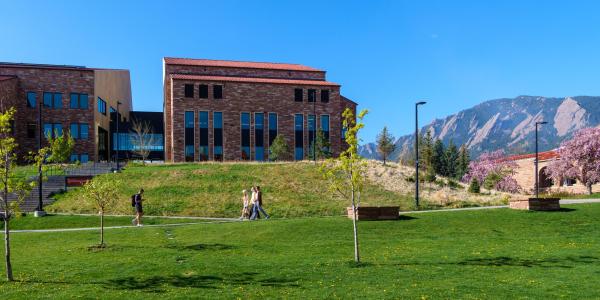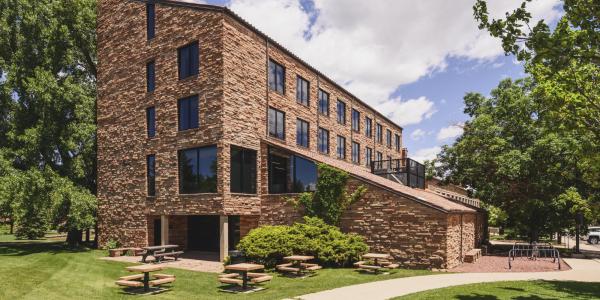
CU Boulder’s total fall enrollment increased roughly 0.6% to 36,122, according to new enrollment data published Wednesday. The figure is in line with long-term goals, and recent projections, according to university leaders. The data also demonstrated stronger incoming class diversity and gains in student success measures.
The campus’s fall census marked undergraduate enrollment at 29,583, an increase of approximately 0.2% from fall 2021.
Graduate student enrollment is at 6,539 students, a roughly 2.4% increase from the year before.
“Our campus continues its steady progress toward continuously fulfilling the needs of the state of Colorado,” said Chancellor Philip DiStefano. “We are proud to welcome such a diverse and academically well-qualified group of students to campus this fall."
The first-year undergraduate cohort rebounded to pre-pandemic levels with 7,106 students. The group continued a multi-year trend of incoming diversity, with incoming female students representing more than 49% of the class (up from 45.6%), students of color composing 28.7% (up from 28.3%) and American Indian or Alaska Native students making up 1.9% of the class (up from 1.2%). The 134 incoming American Indian or Alaska Native is an all-time high, surpassing the previous high of 115 in 2016.
New Colorado resident first-year undergraduates increased 12.3% to 3,762 students, the largest incoming resident class ever. The previous record of 3,758 Colorado resident first-year students enrolled in fall 2019. This year’s incoming cohort of Colorado resident first-year undergraduates set all-time highs in the number of students who identify as Black/African American (152 students), American Indian/Alaska Native (70 students) and Asian American (532 students).
“Predicting and maintaining enrollment has been a major challenge for higher education institutions across the country since the start of the COVID-19 pandemic,” said Patrick O’Rourke, CU Boulder’s chief operating officer. “Our success continues to reflect that CU Boulder’s world-class academic experience is an attractive option for prospective students.”
Several measures in the census data also reflect recent gains in student success.
Second-fall retention, which measures students retained after their first-year, hit an all-time high in 2022, with 87.8% of 2021 first-year students persisting into their second academic year.
Graduation rates are also hitting record highs, with the five-year graduation rate for the fall 2017 cohort reaching 72.6% and the six-year graduation rate for the 2016 cohort notching 74.7%.
“These improvements in student success show our investments in this area are having a tangible positive impact, and we look forward to continuing the momentum through initiatives such as Buff Undergraduate Success,” said Chancellor DiStefano.
Incoming transfers are down about 8% from fall 2021, an expected result given community college enrollment declines nationwide and regionally. Community colleges are typically the biggest feeder pathway for transfer students.
“This fall’s enrollment, even though lower than what was budgeted in June, reflects a financial recovery beyond pre-pandemic conditions,” said Carla Ho’a, vice chancellor and chief financial officer. “We will be working quickly to provide updated allocations based on the new campus budget model, but expect the amounts to be similar to what was shared with schools, colleges and support units in February 2022.”
The 2022–23 budget included spending for student success programs to boost retention and graduation rates, as well as investments in campus diversity, equity and inclusion work. The budget also includes faculty and staff merit increases and additional funding for faculty promotion raises and measures to address compression and market pay issues.



